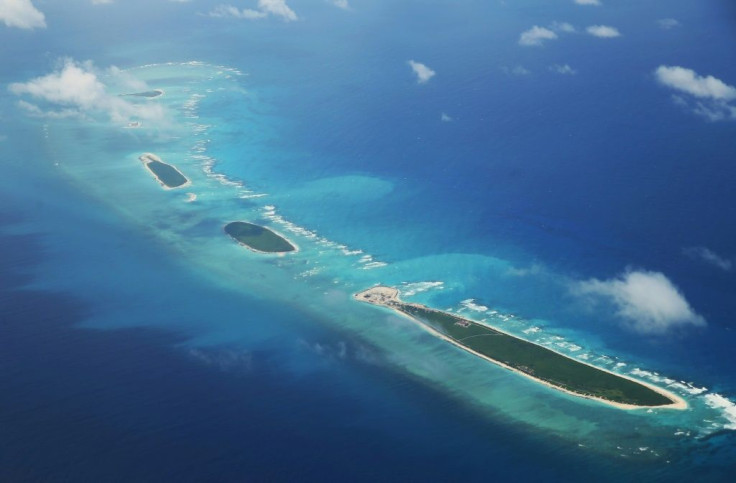South China Sea Dispute: Beijing Warns US Against Military Escalation
The U.S. and China are both escalating their military presence in the South China Sea. While the U.S. calls China's action "illegal," China says the United States' move is "provocative."
The Global Times, a Chinese state-run daily news tabloid, reported Monday, July 20, of warnings by Beijing over what China calls provocative military escalations by the U.S. in the South China Sea.
The tabloid, while not an official "mouthpiece" of the Chinese Communist government, is aligned with their viewpoints. The Global Times said, "If U.S. military provocations in the South China Sea persist, China could be left with no choice but to conduct more drills and deploy more warships and warplanes in the South China Sea," as per the U.S. News.
The report also confirmed that Beijing had sent a brigade of aviation forces to two islands in the contested Paracel Archipelago along with a series of warships. The move is a response to the recent redeployment by the U.S. of two aircraft carriers to the region. Claiming that the U.S. "is the real pusher of militarization in the South China Sea,” the Chinese plan is to conduct "live-fire maritime target attack drills."
The biggest change in the U.S. stance toward China’s movements in the South China Sea occurred last week when Secretary of State Mike Pompeo called Beijing’s claims to resources and a campaign of bullying in the waters as "completely unlawful." The U.S. remains neutral but will demonstrate support for its allies and partners that also claim islands, reefs and fishing grounds as their own.
Another point of contention between the two superpowers is the implementation of new national security laws by China in Hong Kong. China views them as necessary to stem violence and terrorism over last years unrest over an unpopular extradition bill. Most free democratic countries view the law as China’s attempts to gain full control of the semi-autonomous city.
President Donald Trump was able to rally bipartisan support in Congress over the new security laws, a rare event given the upcoming presidential elections in a politically divided U.S. This prompted China to threaten more sanctions against American officials over what it called U.S. interference in Beijing's designs for Hong Kong.
Instead of provocative, the U.S. refers to the deployment of the two aircraft carriers, the USS Nimitz and the USS Ronald Reagan to the area as "freedom of navigation" exercises in waters that the U.S. considers international territory.
A statement by Vice Admiral Bill Merz, commander of the Navy's 7th Fleet, indicated that the U.S. forces were quite capable of standing up to any Chinese threats. The statement read, "High-end integrated exercises bring unmatched flexibility, endurance, maneuverability, and firepower to an all-domain warfighting environment. Alongside like-minded regional partners, these efforts are in direct support of U.S. resolve to fly, sail, and operate wherever international law allows. The capability and flexibility of our Navy are on full display as we support Indo-Pacific security and stability. There is no better example of our regional commitment, and periodically we will bring multiple teams together in 7th Fleet to practice large-scale coordinated operations."
China’s actions in the South China Sea, a recent border skirmish with India, and now the National Security Laws in Hong Kong are leading many experts to believe that China is taking advantage of the distractions caused by the COVID-19 pandemic to advance its territorial goals.

© Copyright IBTimes 2024. All rights reserved.





















